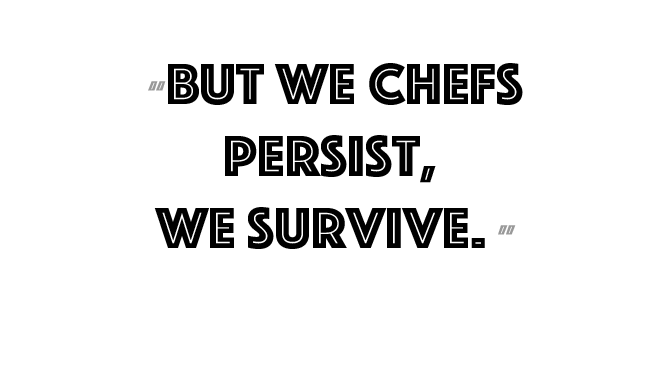Clark Barlowe is the executive chef-owner of Heirloom restaurant in Charlotte, North Carolina. He recently wrote a blog post called “Suicide in the Culinary Industry” and it’s worth your time. An excerpt:
“If you had asked me two years ago what my reaction would be to an iconic chef’s suicide, I honestly don’t know how I would have answered you. Most likely I would have read the articles, compartmentalized the issue and gone on with my day. I have learned that relationships make us who we are however, and my partner is a PhD student who researches mental health promotion and substance abuse prevention, as well as suicide prevention. For this reason, I had a different reaction while reading the news surrounding Chef Violier’s death. I grieved for the loss, but I also tried to understand the issue.
Suicide is complex; we should not try to fit it in to a neat box to make ourselves feel comfortable with the situation. We have to embrace the uncomfortable nature of the issue we are dealing with, as well as understand that this issue cannot be normalized to the point we feel we don’t need to discuss it. We should be comfortable with this embracement of the uncomfortable- we do this to ourselves daily: staff, product, customers, all of these variables have the opportunity to make us uncomfortable on any given day, yet we are equipped to deal with them. Let’s use this situation as an opportunity to equip ourselves with a new set of skills that include open communication and understanding of our peers and then use that to affect broader societal change.
Chefs have become known as activists in the world wide community, but we have forgotten to nurture our own. We are a culture that cares deeply about the projects and ideals we are passionate about, and are generous with our time and resources when it comes to supporting them. We work with non-profits on what seems to be a daily basis, we take up causes we believe strongly in, most of which expectedly revolve around food, even when it seems our time is limited at best. We are now confronted with an issue that transcends our industry and it falls to a culture such as ours to provide an example of how to grasp it.”

